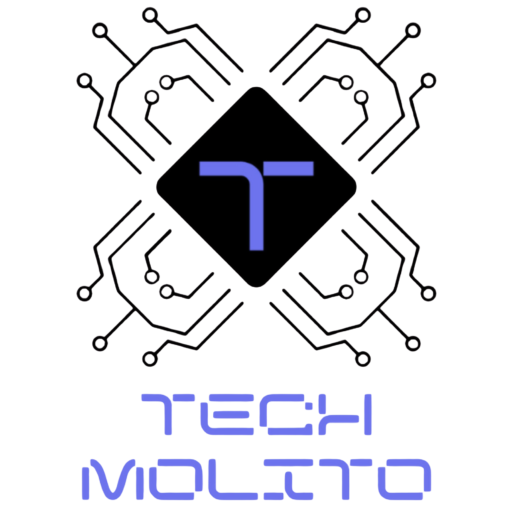We all know that technology is advancing at lightning speed. But what does that mean for the job market? One thing is certain: tech jobs will continue to grow. However, the types of jobs might surprise you. If you’re curious about where to find the best tech jobs of the future or how to future-proof your career, you’re in the right place.
The Rapid Change of Tech Jobs
The tech industry is always evolving. That’s great for innovation, but it can be a challenge for job seekers. Today’s job titles might not exist in a few years. For instance, a decade ago, “social media manager” was rare.
Now, it’s a must for businesses. With artificial intelligence (AI), machine learning, and automation on the rise, new roles are coming, and some are disappearing. In many tech roles, optimizing device performance can be a valuable skill. For tips on improving your device, check out our guide on How to Speed Up Your Android Phone.
Here’s the issue: You don’t want to waste time learning a skill that will be obsolete. Imagine investing years into a job role that gets replaced by AI. Scary, right? How can you avoid this problem? The solution lies in knowing where tech is headed and choosing the right path now.
Fear of Job Replacement
It’s natural to feel worried about your career in tech. Automation and AI are already taking over tasks in industries like manufacturing, customer service, and even journalism. Some reports suggest that up to 30% of jobs could be automated by 2030.
This could leave millions of people searching for new careers. If you’re not careful, you could get stuck in a dead-end job.
But it’s not all bad news. Tech also creates new jobs that didn’t exist before. The key is to stay ahead of the curve, continuously learning and adapting. The future might seem uncertain, but knowing which tech jobs are growing can help you thrive.

Future-Proof Tech Jobs
So, what’s the solution to staying relevant? It’s about understanding which tech jobs are on the rise. Here are some roles expected to see big growth in the future:
Artificial Intelligence Specialist
AI isn’t just the future, it’s the present. Companies are already using AI to enhance everything from customer experiences to production efficiency. But, AI specialists will continue to be in demand as companies find new uses for AI.
What does an AI Specialist do?
- Develops and improves AI systems.
- Works on machine learning algorithms.
- Ensures that AI systems are ethical and unbiased.
AI specialists typically need a strong background in math, computer science, and programming languages like Python. A degree in these fields helps, but hands-on experience is just as important. You might want to take online courses or get certifications in AI to stay competitive.
Data Scientist
Data is the new oil. Companies collect mountains of data, but they need experts to make sense of it. Data scientists help businesses understand trends, customer behavior, and much more.
What does a Data Scientist do?
- Analyzes large datasets.
- Uses statistical models to solve problems.
- Helps companies make data-driven decisions.
Data science requires a strong grasp of math, statistics, and programming. Learning languages like Python, R, and SQL is a must. This job will be highly sought after for many years, as companies increasingly rely on data to drive their decisions.
Cybersecurity Expert
With more businesses moving online, cybersecurity is more important than ever. Hackers are constantly finding new ways to break into systems. That means companies need skilled professionals to protect their data and networks.
What does a Cybersecurity Expert do?
- Identifies and fixes security vulnerabilities.
- Set up firewalls and encryption.
- Protects businesses from data breaches.
This job involves knowing the latest security tools and keeping up with new threats. If you’re interested, look into certifications like Certified Information Systems Security Professional (CISSP) or Certified Ethical Hacker (CEH).
Blockchain Developer
Blockchain isn’t just about cryptocurrency like Bitcoin. Its secure, decentralized structure is being used in many industries, from finance to supply chain management. Blockchain developers build and maintain these networks.
What does a Blockchain Developer do?
- Designs and develops blockchain applications.
- Ensures security and privacy within decentralized systems.
- Implements smart contracts for business transactions.
Blockchain is still a developing technology, but its potential is huge. Developers familiar with this tech will have no shortage of opportunities in the coming years.
Tech Skills of the Future
Besides job roles, some tech skills will be essential no matter what field you’re in. These include:
- Cloud computing: Companies are moving their operations to the cloud, making skills in services like AWS and Microsoft Azure valuable.
- Machine learning: Understanding how to train models and work with algorithms will be key.
- Programming languages: Master languages like Python, Java, and C++.
- Automation: Know how to use software to automate repetitive tasks, making workflows faster and more efficient.
FAQs
1. Will AI take over all jobs?
AI will automate many tasks, but it won’t replace all jobs. Instead, AI will change the nature of work. Jobs that require creativity, problem-solving, and human interaction will still need people. It’s essential to stay flexible and adapt to new technology.
2. What skills should I learn for future tech jobs?
Skills like AI, machine learning, cloud computing, and cybersecurity are in high demand. Learning to code and analyzing data will also help. Consider taking online courses or getting certifications to stay up to date.
3. Are tech jobs secure in the future?
Tech jobs are expected to grow, especially roles related to AI, data science, and cybersecurity. However, it’s essential to keep learning. The most secure jobs will be those that adapt to new technology.
4. How can I get started in tech without a degree?
Many tech jobs don’t require a degree, especially if you have skills in coding, data analysis, or cybersecurity. Start with online courses, boot camps, or self-taught projects. Building a strong portfolio can help you get noticed by employers.
Conclusion
The future of tech jobs is bright if you know where to look. New opportunities are constantly emerging, and there’s no shortage of growth. The key to staying relevant is ongoing learning. Focus on high-demand areas like AI, data science, and cybersecurity, and you’ll set yourself up for a successful and future-proof career.
It’s never too late to start preparing for the tech jobs of tomorrow. Whether you’re switching careers or just starting, the future is full of potential. Keep your skills sharp, stay adaptable, and the tech world will welcome you with open arms.





